
When making a completely unfair comparison between income inequality in developed nations and the top mobile puzzle and RPGs in the U.S., we find a couple of interesting things.
(more…)

When making a completely unfair comparison between income inequality in developed nations and the top mobile puzzle and RPGs in the U.S., we find a couple of interesting things.
(more…)
Tonight, I’m lighting my annual memorial candle to honor the 8th anniversary of the passing of the Mario Lopez one-season Candy Crush show on CBS.
In nine glorious episodes, seemingly longer than most CMO tenures, contestants flailed at wall-sized smartphones in what Lopez dubbed “full contact Crush.”
What many big mobile gaming brands, such as Monopoly Go and Royal Kingdom, misunderstand is that TV ads featuring celebrities are not enough. Like Riot’s Arcane, the key is to integrate the product so profoundly into the ad that it’s practically invisible. And we can’t just count the download lift, proper attribution includes the real-time increase in spend during the show’s timeslot airing.
Look forward to next month, when we’ll be holding another memorial for the 9th anniversary of the passing of Dice with Ellen.
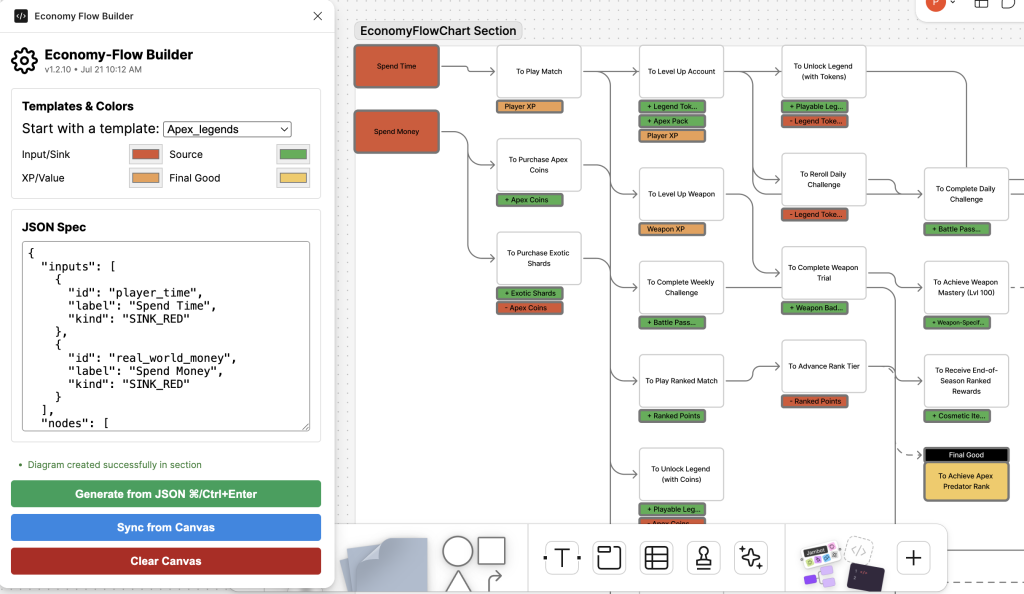
My new Figma plugin, Economy Flow Builder, is now publicly available on the Figma plugin store. This makes it easy to convert and order game economy flows via JSON, automatically converting them into charts. Finally, reproducibility and jumpstarting of economic flow diagrams.
The kicker is that it also syncs back to JSON. If you make changes, such as deleting some boxes, creating new ones, or reorganizing flows, you can sync them back to JSON with a single button click. Tons of nice features in the JSON too. For instance, the ability to create subsections. So if you’re creating a giant economy flow diagram and there’s a particular feature that has a sub-economy, it makes it easy to visually designate this without adding a ton of visual clutter.
I created some dummy examples for presets, but since the plug-in is open-source, I would highly encourage people to contribute back to the community and upload JSON file formats so they can serve as presets for game economies they’ve worked on or are passionate about. But oh boy, wouldn’t it be nice if you could use something like Gemini’s Deep Research to break down a game economy into this JSON format, and automatically pipeline it into the plugin?
Damn, I hope someone works on that next.
I also created an R package for accessing the Fortnite API, but currently, there is no way to retrieve the top islands. If you know what specific island you want to look at, you can get great metrics in one line of code. However, I’m still waiting for Epic to update this one to add a bit more substance! Nonetheless, it’s remarkable that Epic released a public API that includes KPIs likr as retention, unique players, and peak CCU. A huge step forward.

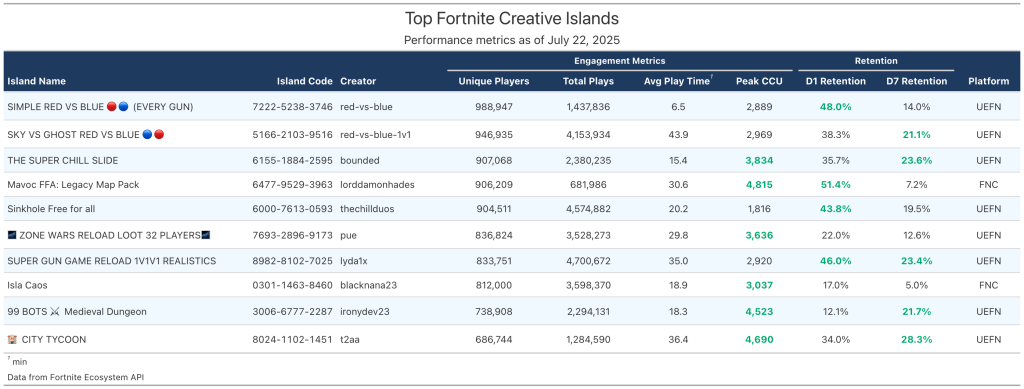
Both Worldwide Global and Million Victories raised money this week, with the French Million Victories announcing a whopping $40M raise (in this economy!). Its title, Million Lords, was a highly innovative attempt at modernizing many 4x mechanics by removing base building entirely and centering the game around combat. It’s also a great exercise on how system design ultimately shapes player behavior.
In this case, the primary way to become more powerful was to level up, which required XP, which required combat. Other mechanics, like world map bounties, kept the bloodbath going. Another combat-focused mechanic was the ability to respond to enemy marches with a reinforcement that could only be deployed in the window of the march. The game explored strong (but now standard) 4x price points with content that other games are still hesitant to try, such as ALL Legendary Gold and Army items at $700+ points (web store).

For its part, Kingdom Maker, which was published by Scopely and developed by Global Worldwide, reintroduced sex into 4X (also some humor). Why can’t you create dynasties? It was a fascinating game thesis that lent itself to a literal game title.


However, the mobile market runs on highly observable and reactive margins. With marketing now consuming 50% of budgets, the gains from optimization are literally halved, while surprisingly, content innovation is also less. Both of these games had some fascinating ideas, but ultimately, if you don’t have a way to connect that to genre economics, it’s hard to scale.
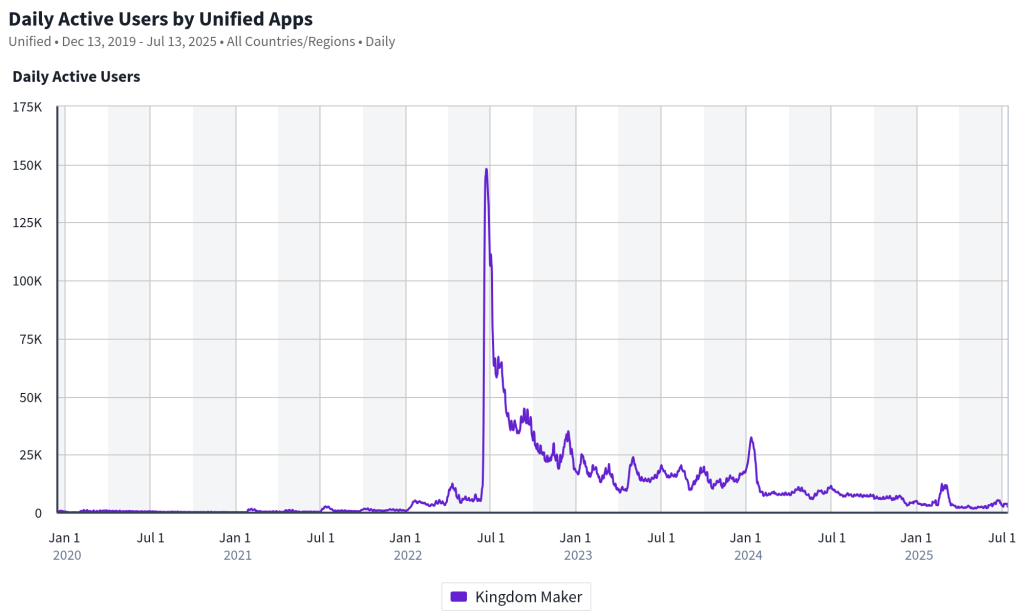
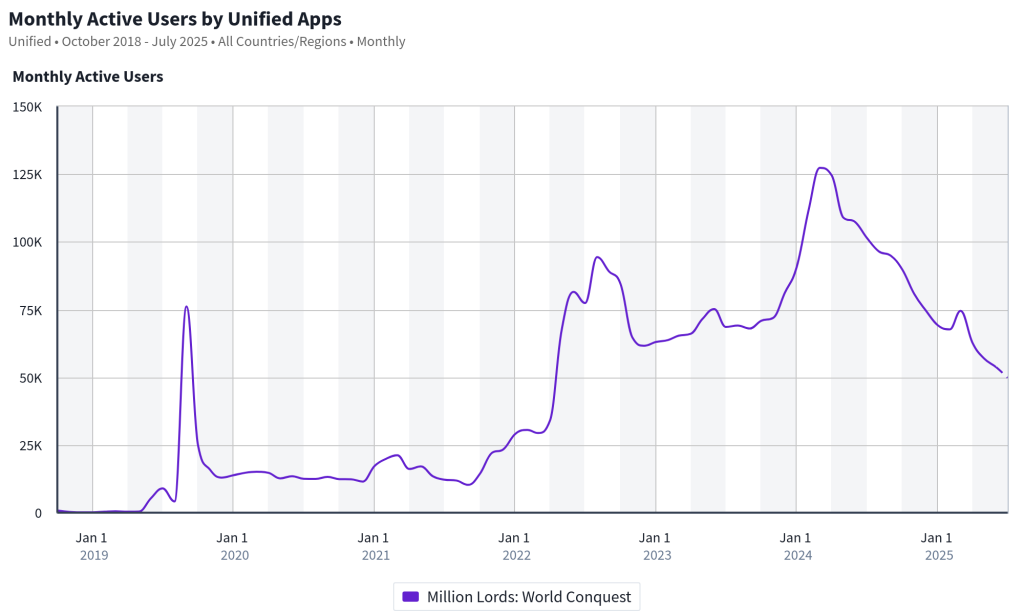
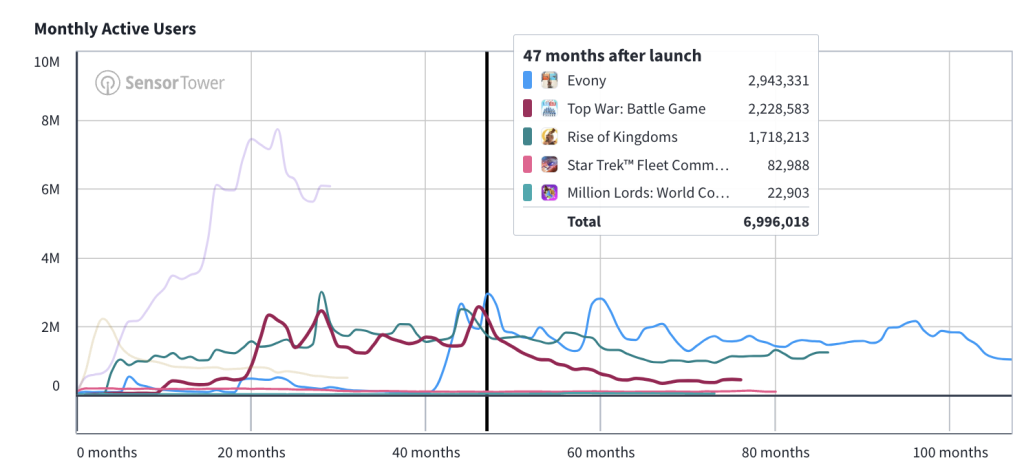
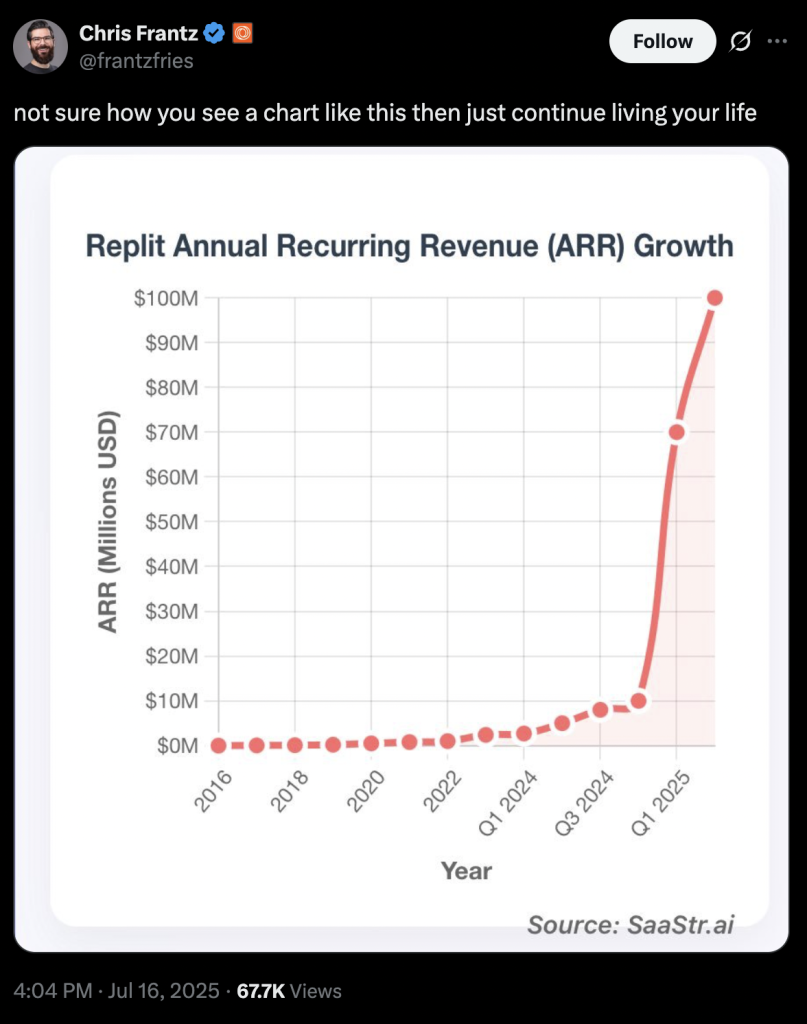
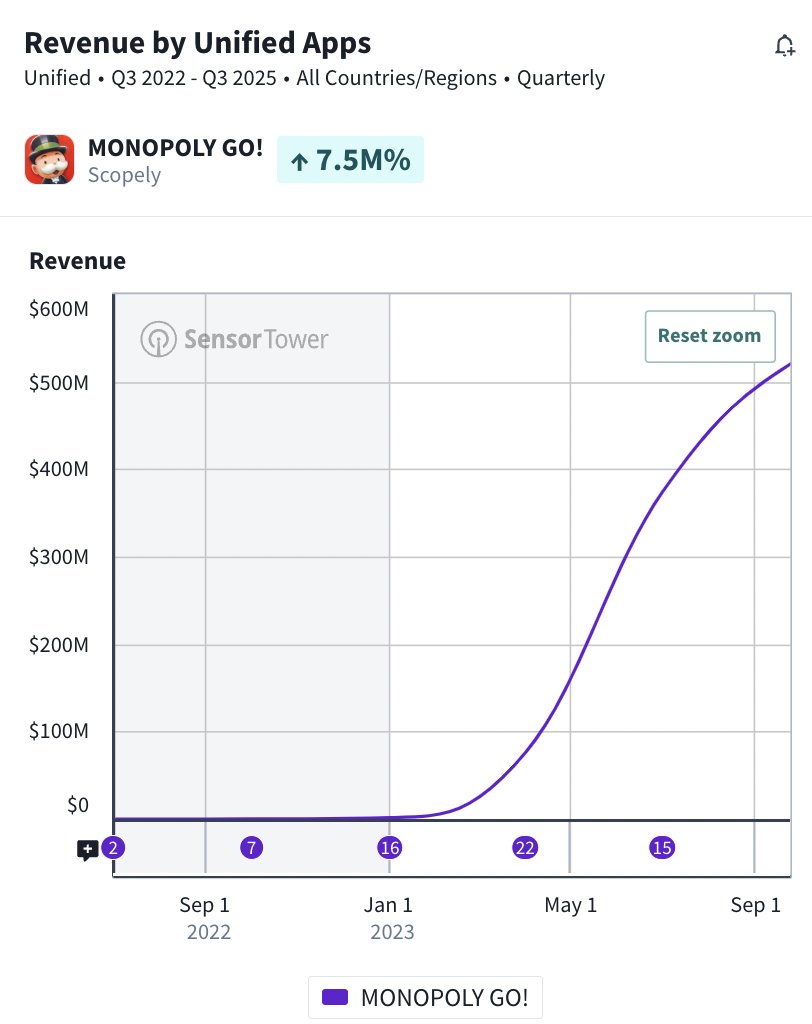
Gaming industry people often have an inferiority complex around “tech”, feeling never quite properly understood, and usually looked down upon. I understand the frustration!
Replit hitting $100M ARR, over two explosive growth quarters, is hailed as a remarkable achievement. However, when we compare it against Monopoly Go (MoPoGo), which achieved multiples of Replit’s actual quarterly revenue over the same acceleration period, it falls much flatter.
Much of this is actually a MoPoGo story, which has experienced an acceleration towards an apex and is now “reverting to the mean.”
The rapid rise of MoPoGo is unprecedented in mobile games; it’s hard to think of anything that has scaled so fast, reaching heights higher than Game of War or Clash of Clans in their heyday. It’s certainly been reported on, but somehow still underappreciated.
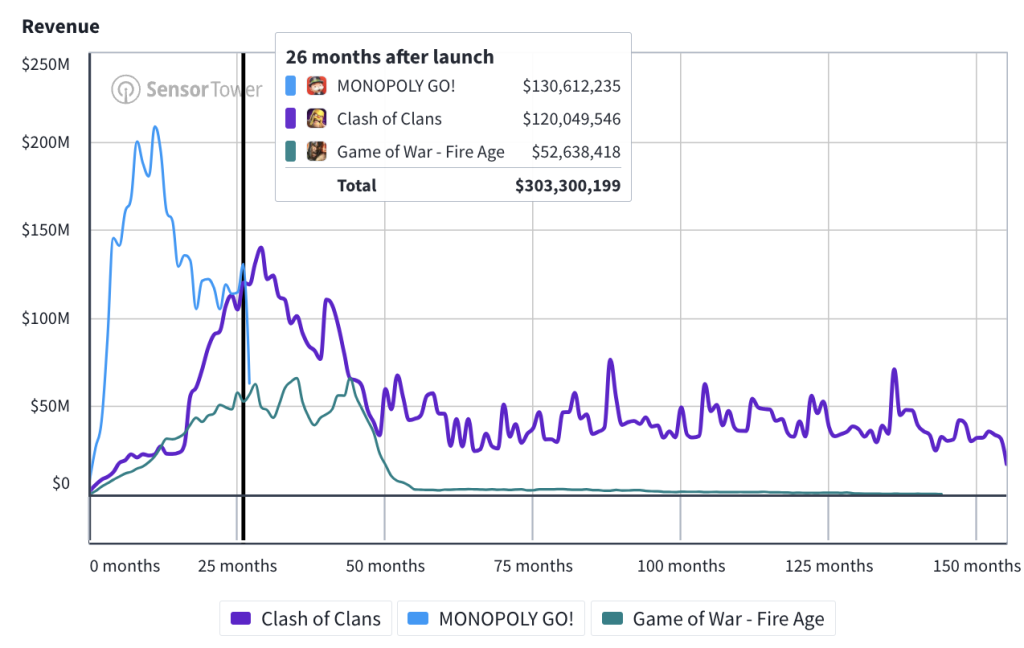
The clones and genre expansion are getting into full gear: even Moon Active is launching “Coin Master Board”, while Fish of Fortune is the most promising game I’ve followed in a while.
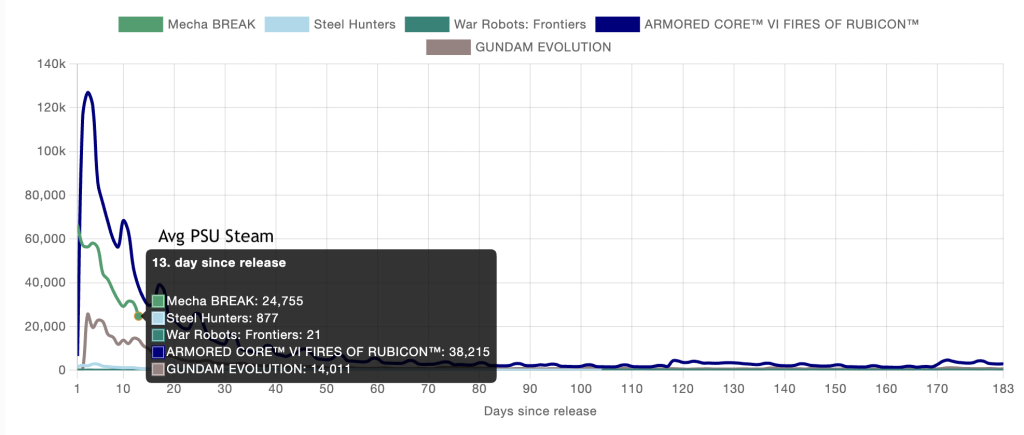
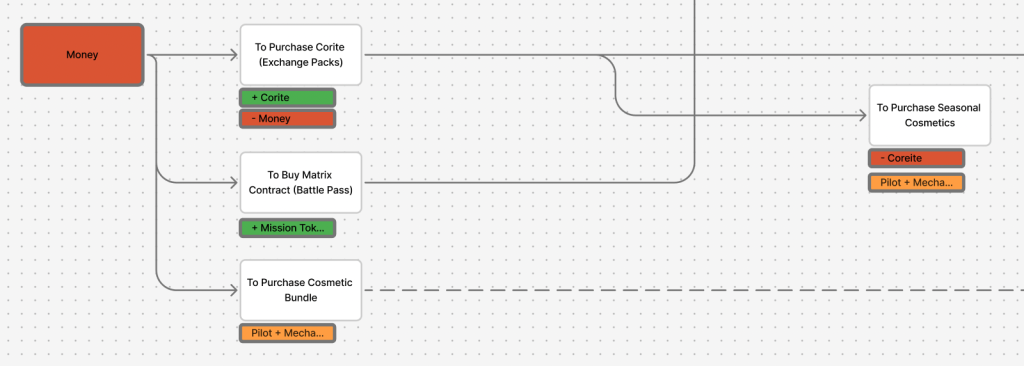
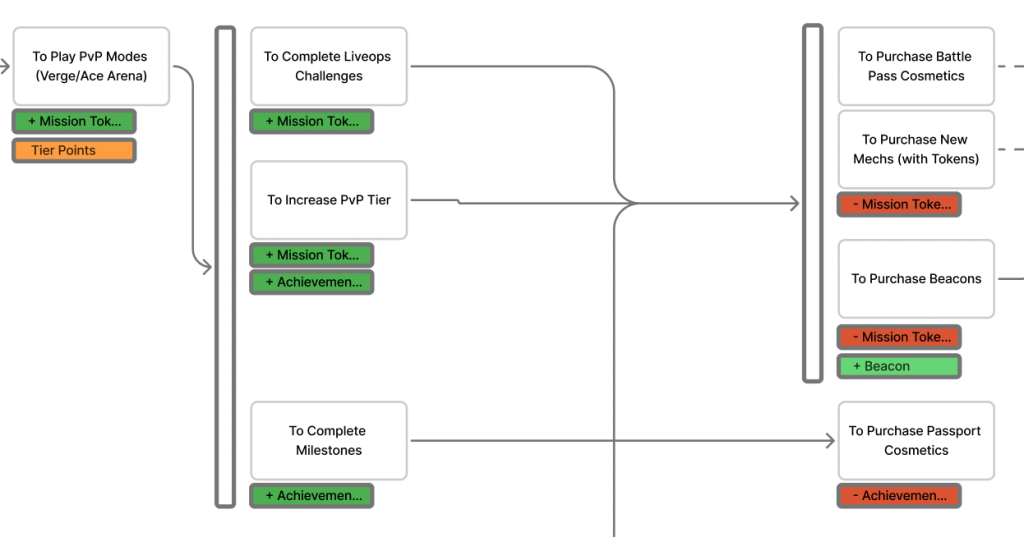
subscribe to the blog subscribe to the blog
subscribe to the blog subscribe to the blog
subscribe to the blog subscribe to the blog
subscribe to the blog subscribe to the blog